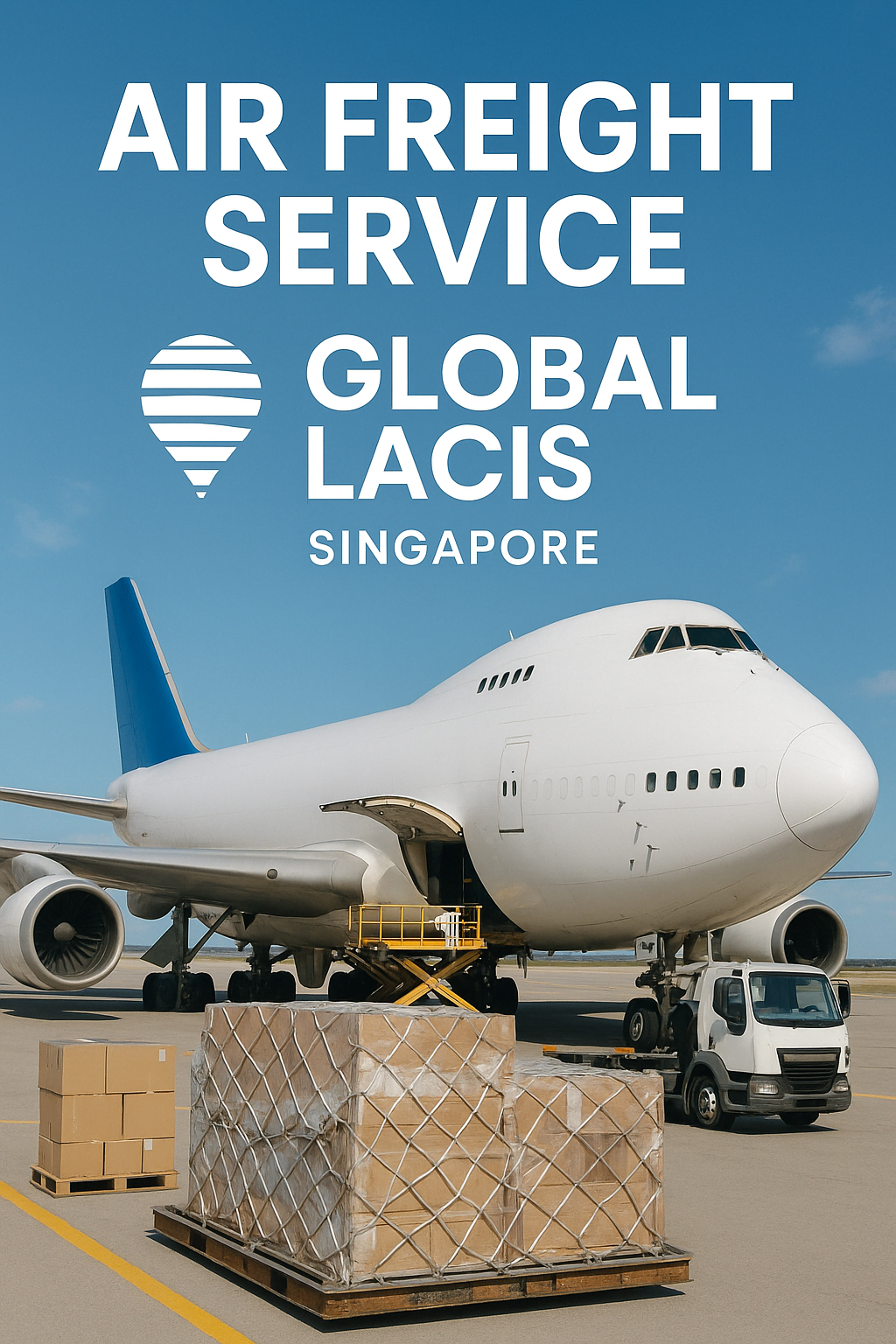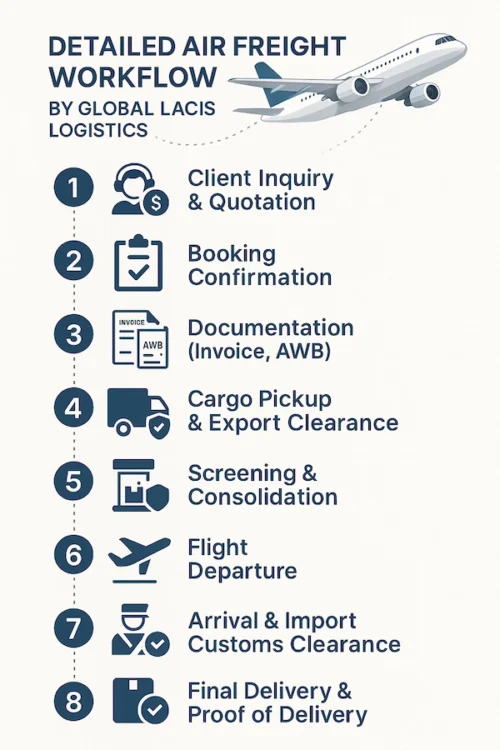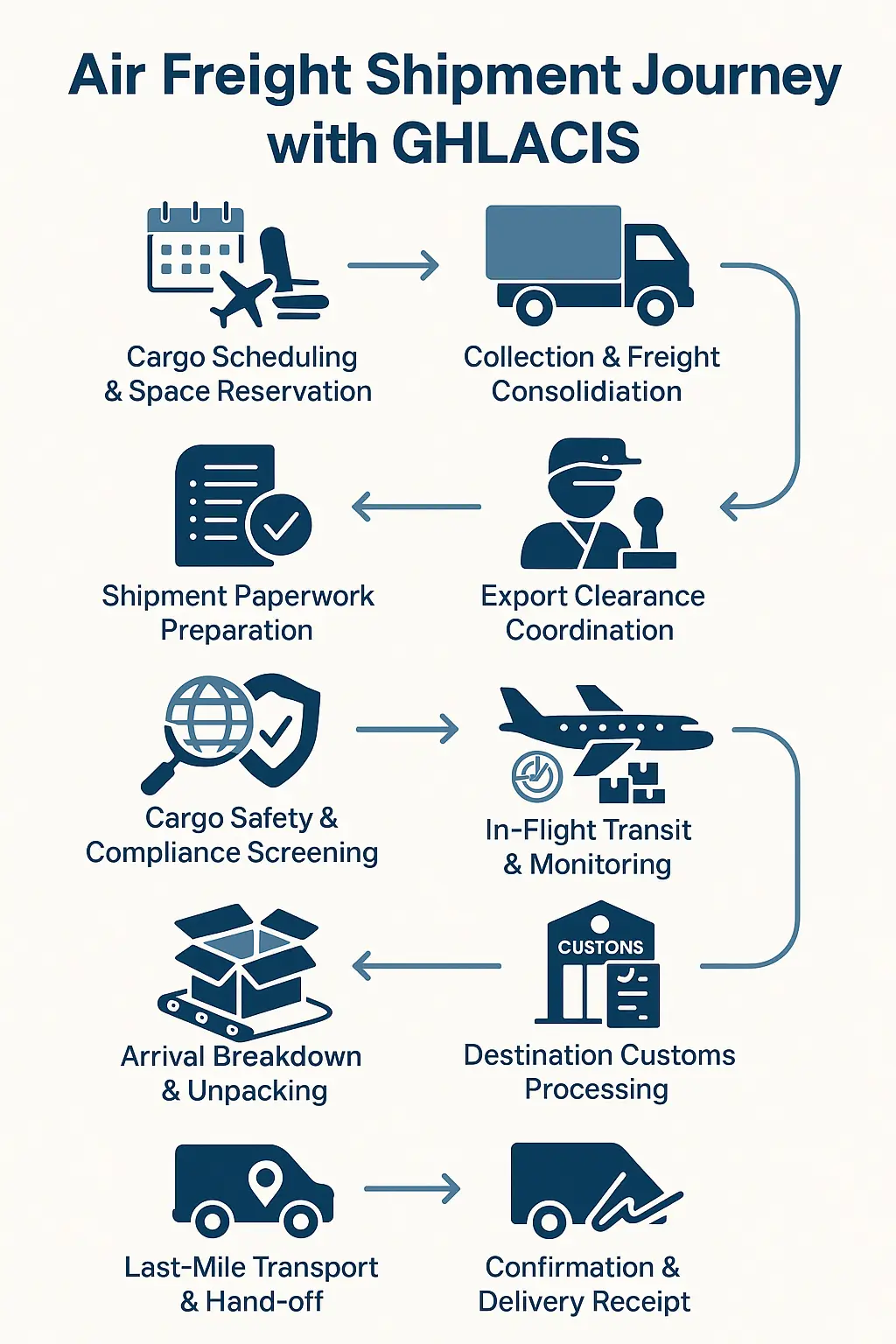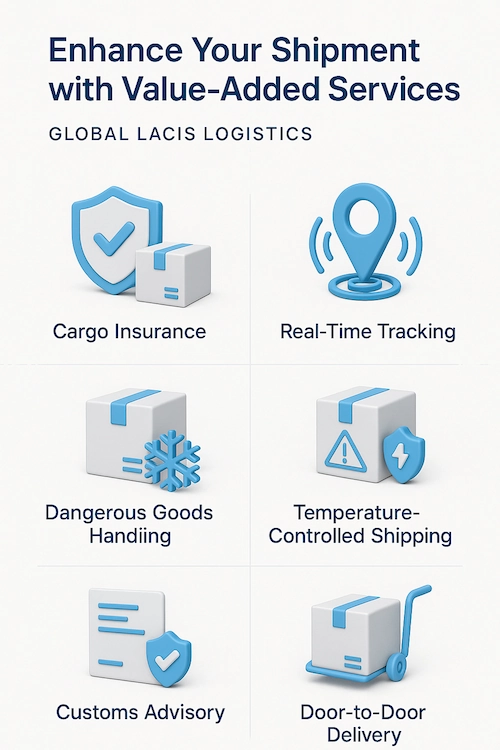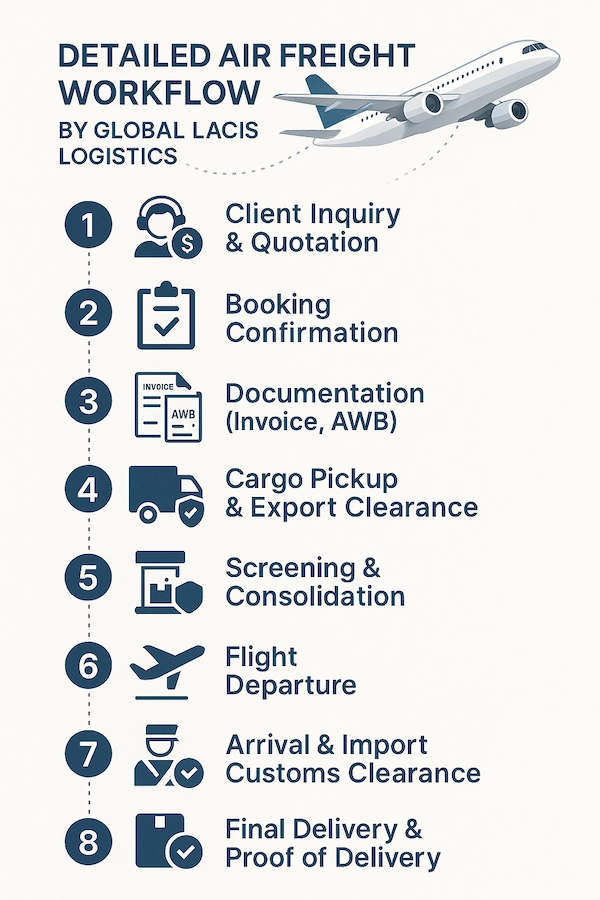What Are the Key Documents Required for Air Freight Shipping in Singapore?
At Global Lacis Logistics, we make air freight shipping smooth and stress-free by helping our clients prepare all necessary documentation ahead of time. With our experienced team and reliable process, we ensure every shipment clears customs without delays or penalties — saving you time and money.
Incorrect air freight information and documentation can trigger significant financial losses through delays, penalties, and even cargo seizure. Knowing the precise documentation needed before shipping is crucial for clients to ensure smooth customs clearance, avoid costly errors, and maintain their supply chain efficiency. Accurate paperwork guarantees timely delivery and prevents unforeseen expenses that can severely impact their bottom line. Don’t let misinformation ground your business profits – understand your air freight documents.
Air Waybill (AWB)
A mandatory transport document issued by the carrier. It acts as a receipt and tracking reference, showing shipment details (e.g., consignment of electronics to Europe).
Commercial Invoice
Lists the seller, buyer, product details, and value. Customs use this to determine duties and taxes (e.g., price and quantity of exported garments).
Packing List
An inventory describing the package contents, dimensions, and weight (e.g., listing what’s inside boxes of machinery parts).
Certificate of Origin (COO)
Verifies the manufacturing origin of goods. May affect import duties or trade agreements (e.g., confirming leather products are made in Italy).
Customs Declaration
Required by customs authorities in Singapore and the destination country. It outlines shipment value, purpose, and contents.
Import/Export Licenses and Permits
Needed for controlled items like chemicals, pharmaceuticals, or electronics (e.g., license to export lithium-ion batteries).
Dangerous Goods Declaration (DGD)
Required when shipping hazardous materials. Includes handling instructions and hazard classification (e.g., transporting flammable liquids).
Phytosanitary Certificate
For plant-based products, this certifies they’re pest- and disease-free (e.g., exporting live orchids).
Health Certificate
Mandatory for live animals or animal-based products. Ensures they meet destination health and safety regulations (e.g., ornamental fish).
Insurance Certificate
Proof that your cargo is insured during transport — essential for valuable or sensitive shipments.
Letter of Credit (L/C) or Payment Documentation
Financial document that confirms payment terms between buyer and seller (e.g., when using a bank guarantee for high-value cargo).
